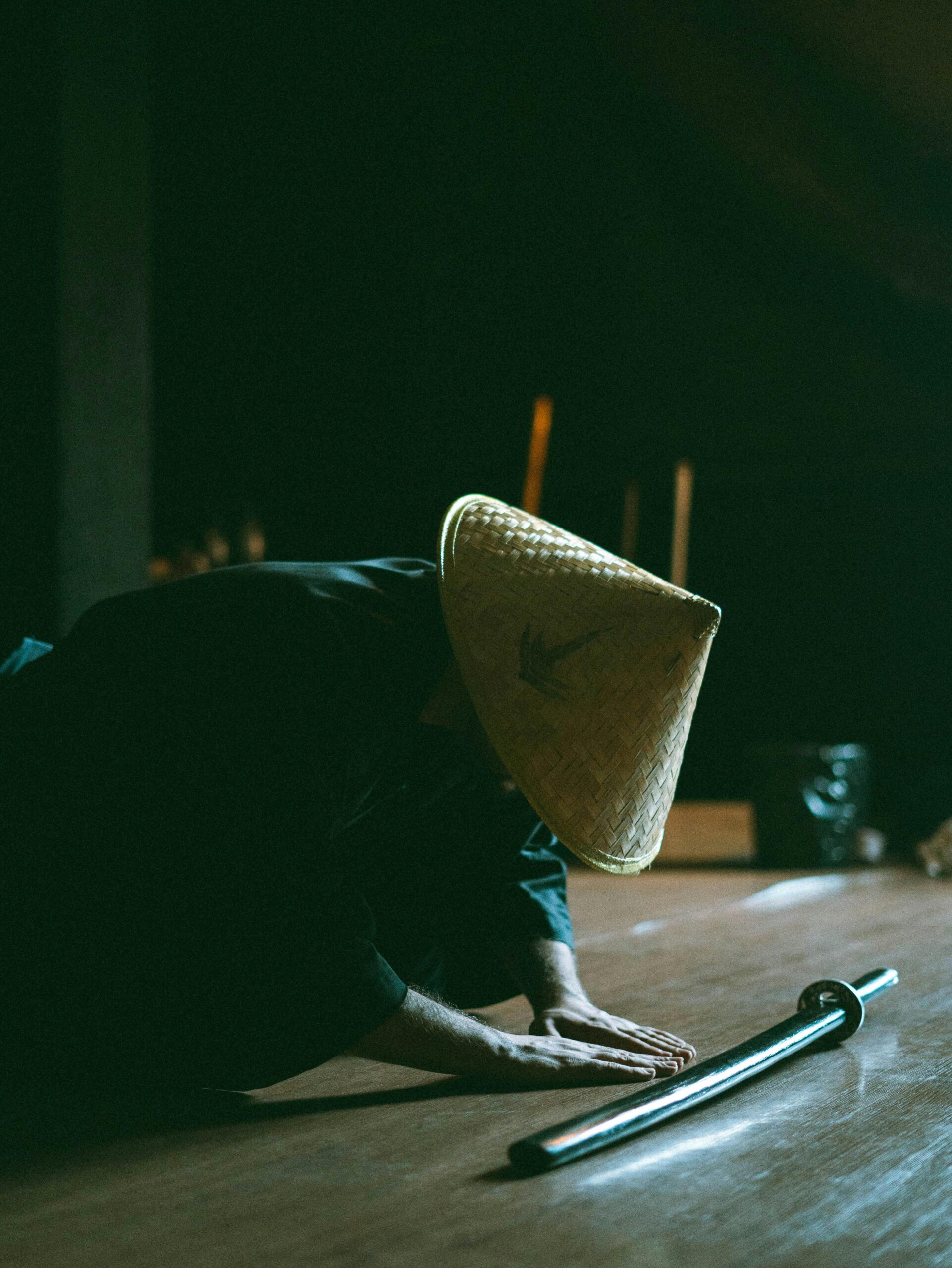First Impressions: A Culture of Consideration
When I first moved to Japan, I quickly noticed how much thought people put into their everyday interactions. At first it seemed small—how people waited in neat lines for trains, how softly they spoke in public, or how shopkeepers bowed as I left the store. But over time, I realized these weren’t just “rules.” They were habits rooted in respect for the people around you.
Coming from Chicago, where directness and efficiency often take priority, the contrast was striking. In the U.S., I was used to casual greetings, light chatter with strangers, and a kind of open informality. In Japan, silence sometimes speaks louder than words, and even small exchanges are wrapped in layers of politeness.
At first, I felt both charmed and overwhelmed. Could I ever really fit into this rhythm?
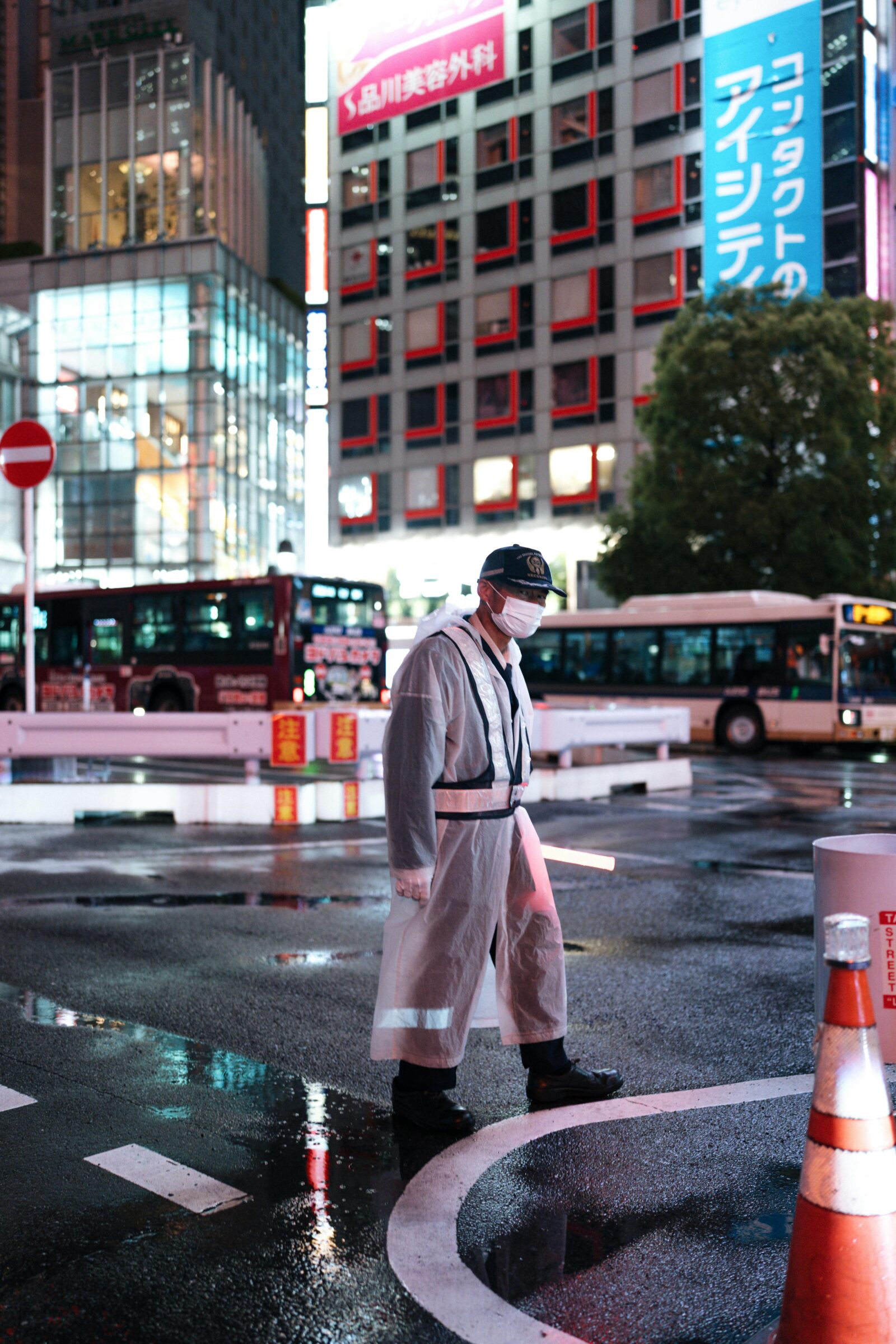
Masks: More Than Just a Pandemic Habit
One of my earliest adjustments was the practice of wearing masks. Like many people outside Japan, I associated masks almost exclusively with hospitals or pandemics. But in Japan, masks have long been part of everyday life.
- During pollen season, people wear them to ease allergies.
- In winter, they help prevent colds from spreading.
- And more importantly, masks are a way of saying: I care enough about others to avoid causing them trouble.
The first time I wore a mask here, I felt self-conscious. Was I doing it right? Did I look odd? But as I walked through town, surrounded by people casually wearing masks without fuss, I began to see it differently. Masks weren’t about hiding; they were about harmonizing.
Now, it feels natural. On days when I have a cough or when pollen is heavy, slipping on a mask is second nature. It’s not just a health habit—it’s a small act of consideration for everyone I might pass by.
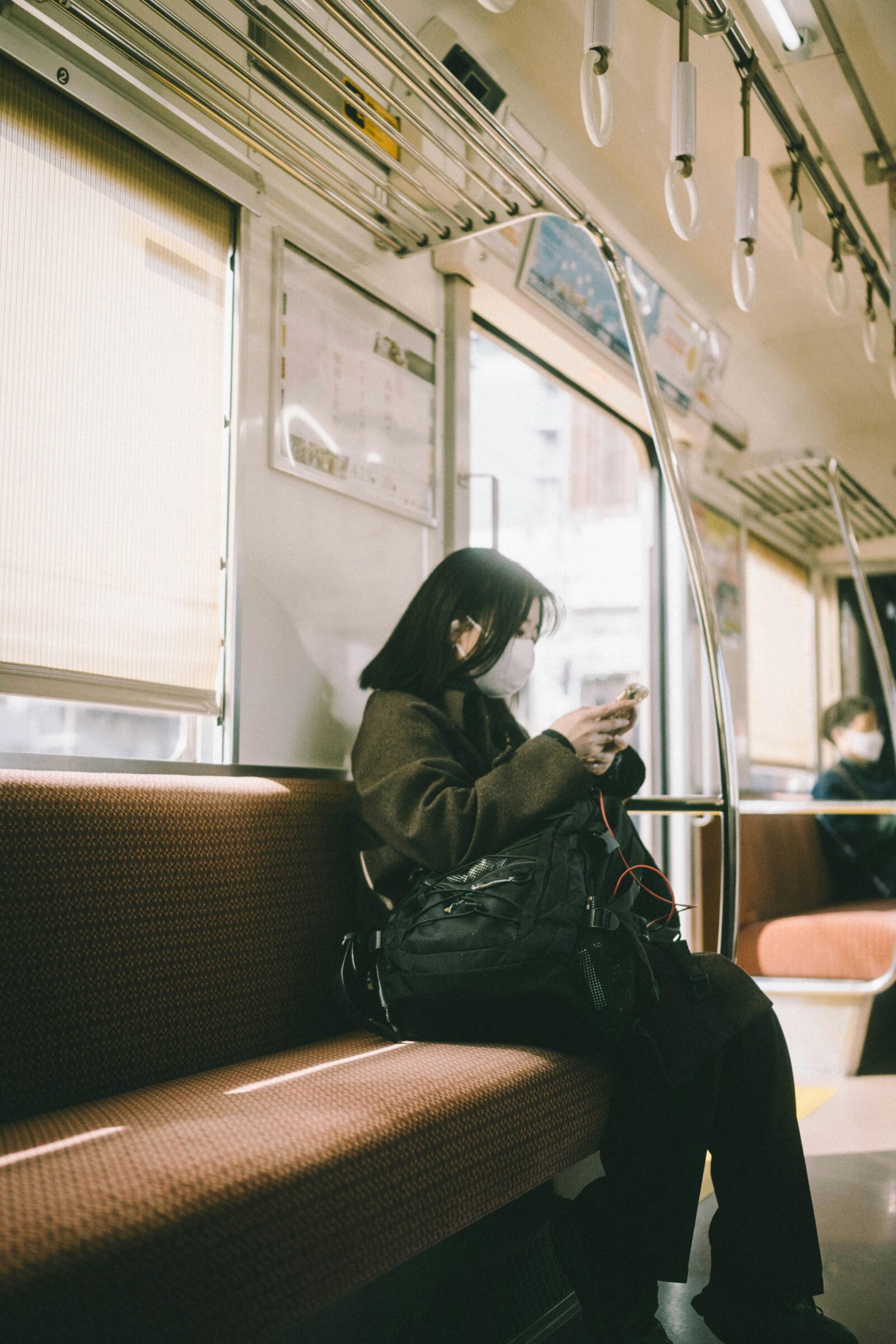
Everyday Manners: The Details That Shape Daily Life
1. Trains and Buses: The Art of Quiet
In Chicago, public transportation was often noisy, with people chatting on phones, playing music, or talking across seats. My first ride on a Japanese train was almost eerie in comparison—so quiet that the only sounds were the train itself and the occasional announcement.
No one spoke loudly. No one took phone calls. People lined up carefully before boarding and made space for others without complaint.
At first, I was nervous—what if I made a sound? But over time, I came to appreciate the calm. I realized that the silence wasn’t cold; it was considerate. Everyone was sharing the same small space, so everyone kept it peaceful.
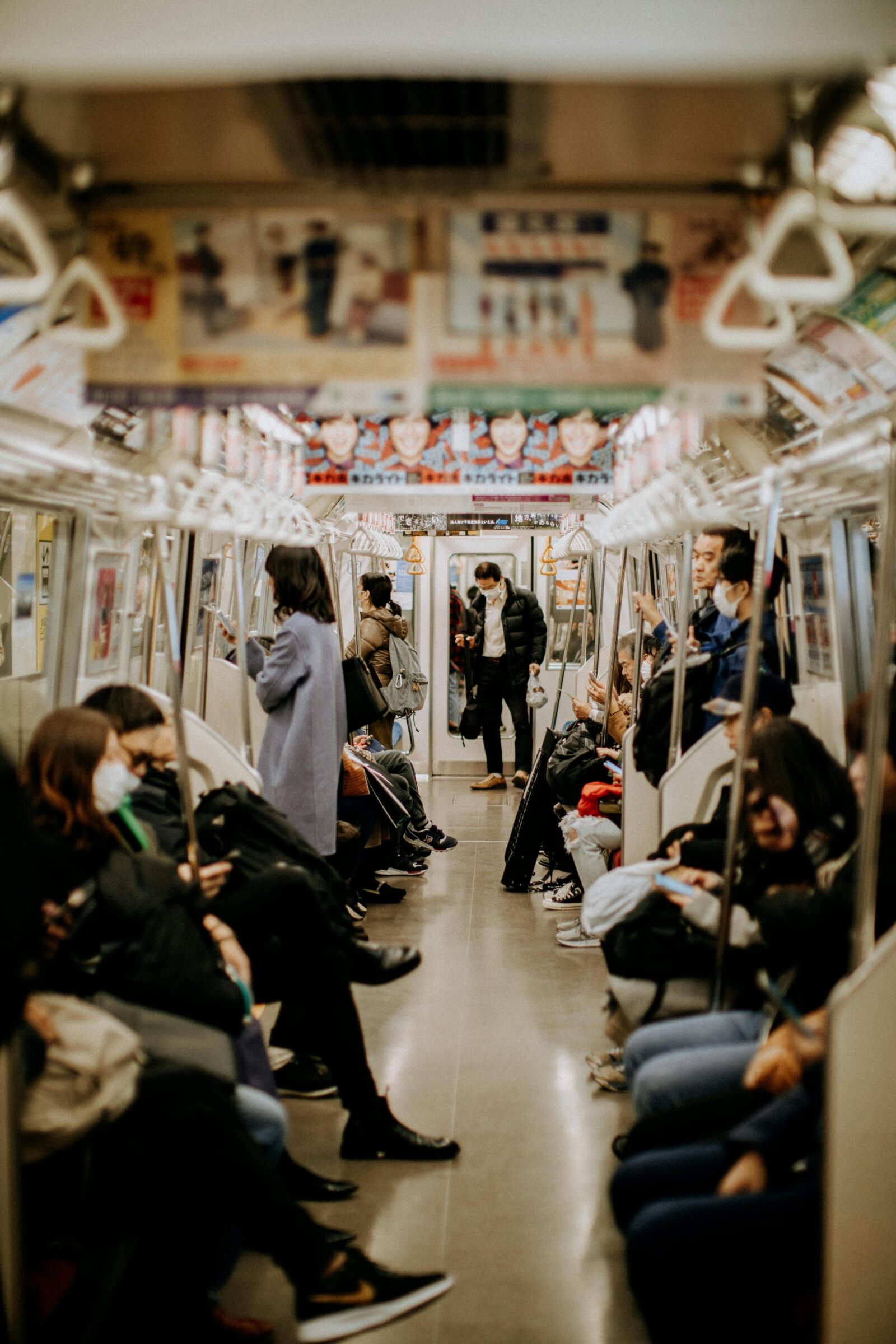
2. Shopping: Money Trays and Polite Exchanges
Another adjustment was the way transactions happen in Japan. At convenience stores, supermarkets, and even small cafés, cash is often handed not directly, but placed neatly on a tray. At first, I fumbled—stretching my hand out while the cashier gently pointed to the tray.
Now, I see the beauty in it. The tray makes the exchange smooth, respectful, and avoids awkward hand-to-hand contact. It’s a tiny system that turns something as simple as paying for groceries into an orderly ritual.
And then there are the words: every transaction comes with a cheerful “irasshaimase!” (welcome!) when you enter, and a polite “arigatou gozaimashita” (thank you very much) when you leave. It’s more than customer service—it’s a daily reminder that kindness is part of the routine.
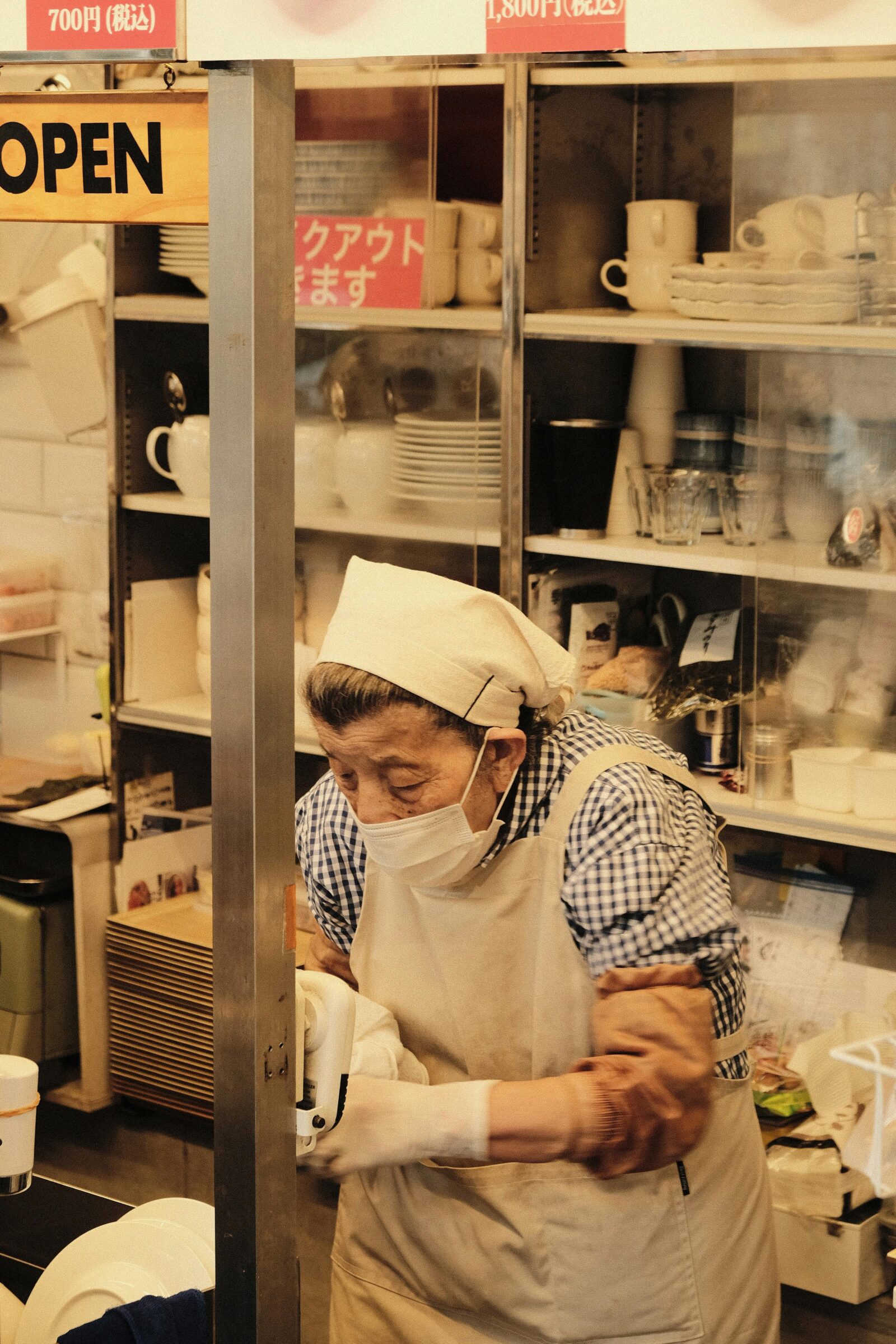
3. Dining: Shared Gratitude
Meals in Japan come with two powerful phrases:
- “Itadakimasu” before eating, meaning “I humbly receive.”
- “Gochisousama deshita” after eating, meaning “Thank you for the meal.”
At first, I was shy to say them out loud. But as I practiced, I realized how grounding these words are. They frame the meal as something to be grateful for—not just the food, but the hands that prepared it.
And then there are the smaller dining manners: not walking while eating, using chopsticks respectfully, avoiding loud chewing. They’re not rules meant to restrict—they’re signs of thoughtfulness, making meals more pleasant for everyone.
Language as Politeness: My Slip-Ups and Lessons
Politeness in Japan isn’t only about behavior—it lives in the language itself. This was one of the hardest adjustments for me.
In English, you can be polite with tone or extra words: “please,” “thank you.” In Japanese, politeness is built directly into grammar. The difference between casual and polite can be just a verb ending—and getting it wrong can change everything.
One day at work, my boss explained something to me and asked if I understood. Without thinking, I replied:
- 「分かった。」 (Wakatta.) – “Got it.” (casual)
But in that situation, the proper reply would have been:
- 「分かりました。」 (Wakarimashita.) – “I understood.” (polite, workplace-appropriate)
It was such a small difference—just a few syllables. But it shifted the entire tone. My boss didn’t scold me. In fact, they smiled gently, maybe amused at my foreigner slip-up. But I noticed it, and I felt embarrassed.
That moment taught me how deeply respect runs through Japanese. It’s not only about bowing or saying thank you—it’s in every verb ending, every phrase.
I’ve made other slip-ups too:
- Saying 「ちょっと待って」 (Chotto matte, “Wait a sec”) when I should have said 「少々お待ちください」 (Shōshō omachi kudasai, “Please wait a moment”).
- Answering too abruptly with just 「はい!」 instead of the more polished 「はい、分かりました。」
- Dropping desu/masu endings entirely when I was tired, without realizing it.
Every mistake felt like a little stumble. But each one made me more mindful. And slowly, I began to feel the rhythm: when to soften my words, when to add formality, when to relax into casual speech with friends.
The Balance: Being a Foreigner, Being Forgiven
One thing that surprised me is how patient and kind Japanese people often are with foreigners. My coworkers didn’t expect me to be perfect. When I made a slip, they sometimes found it cute, or they brushed it off with understanding.
At first, I relied too much on that forgiveness. But over time, I wanted to do better—not because I feared making mistakes, but because I wanted to show respect. Learning manners wasn’t just about “fitting in.” It was about building bridges.
And the truth is, no one becomes perfect overnight. I still catch myself sometimes. But each mistake has become part of my adjustment story, a reminder that growth comes slowly but surely.
Lessons From Masks and Manners
Looking back, what have I learned from adjusting to Japan’s everyday politeness?
- Small gestures matter. A bow, a quiet voice, a mask—tiny things create harmony.
- Language is respect. A verb ending can mean the difference between casual and considerate.
- Politeness is about empathy. It’s not rules for rules’ sake—it’s thinking about how your actions affect others.
- Forgiveness helps growth. Mistakes are natural, and kindness encourages improvement.
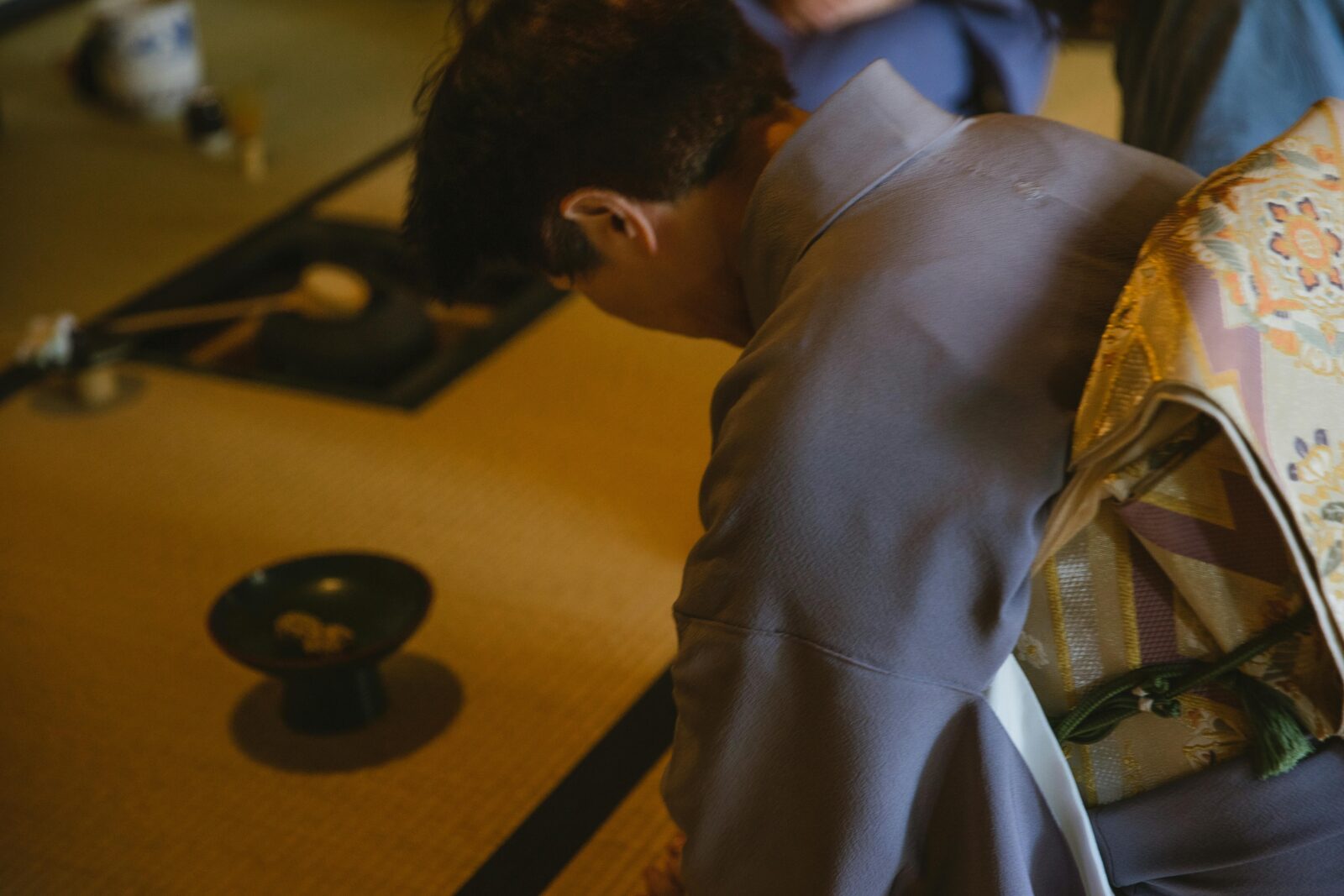
Conclusion: Finding Harmony in Oishii Days
When I first arrived in Japan, masks felt strange, quiet trains felt intimidating, and my language mistakes felt heavy. Now, they’ve all become part of my daily rhythm.
I see masks as kindness. I see quietness as peace. I see polite words as bridges.
On Oishii Days, I often write about food, culture, and small joys. But really, living deliciously in Japan is also about embracing the manners that season everyday life. It’s learning to say itadakimasu with gratitude, to bow slightly at the cashier, to soften your voice on the train, and yes—even to catch yourself when you slip into casual speech at work.
Every day here teaches me that life is richer when we move with care. And though I’m still adjusting, I think that’s the heart of politeness in Japan: not perfection, but thoughtfulness.
And maybe that’s what makes each day here truly oishii.

